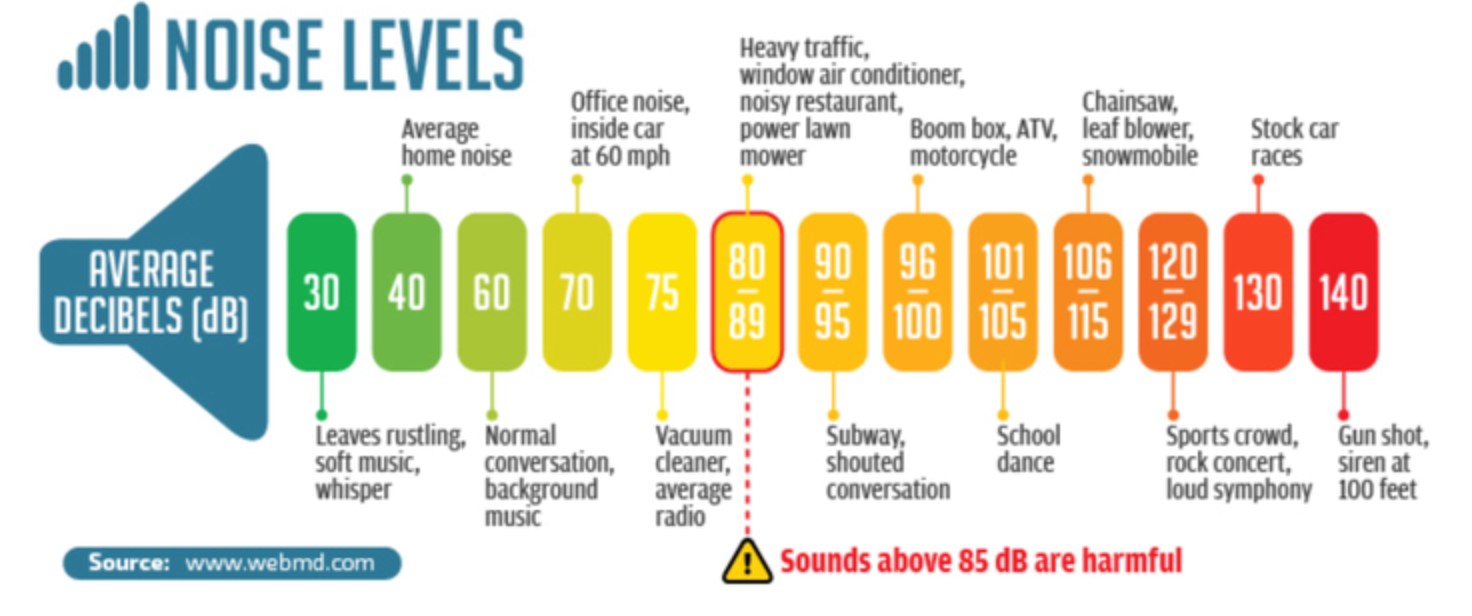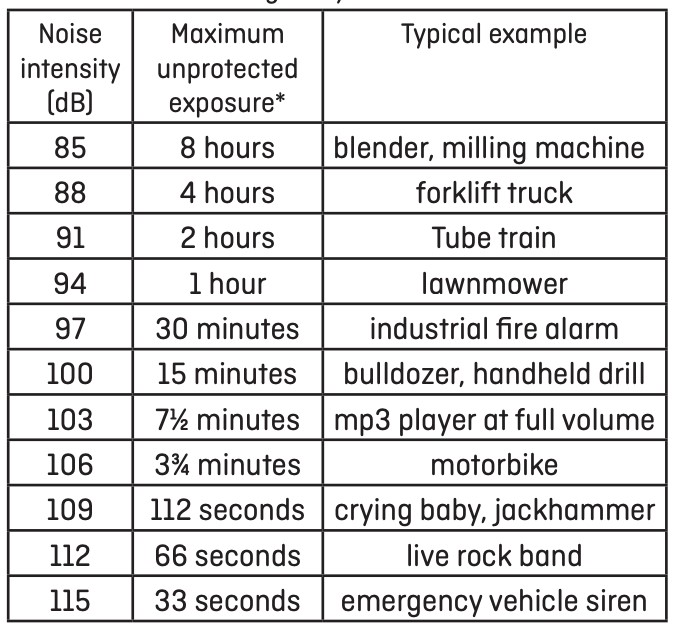Deafness and hearing loss toolkit
Preventing Hearing Loss
A decibel dB, is the unit used to measure the intensity of a sound – 85dBA and above is the level at which noise becomes unsafe without the use of hearing protection
The ‘dosage’ of noise exposure is dependent on two main things:
- the ‘volume’ or intensity of the noise
- the time or duration of the exposure to that noise.
The British Tinnitus Association has produced some guidance on 'how loud is loud'.


Identifying loud noise
- If you have to shout to be heard by somebody around a metre away, the background noise is loud enough to be potentially damaging.
- If your hearing is dulled after exposing yourself to noise, then your hearing has been damaged. This may be temporary, but if you expose yourself repeatedly to these situations, the damage may become permanent.
- If you find a ringing or buzzing in your ears (tinnitus) after exposing yourself to noise, then the noise is likely to have been damagingly loud.
- If a sound is painfully or uncomfortably loud, stop exposure immediately.
Consequences
- Hearing loss at certain frequencies. If noise is the suspected cause, this is termed noise-induced hearing loss.
- The hearing loss can be temporary, and recover within a day or two, or permanent, and not recover at all.
- If temporary, it should be taken as a warning that permanent damage is likely if this exposure is repeated.
- Loud noise exposure can sometimes cause a ringing or buzzing in the ears called tinnitus. Sometimes tinnitus goes away after a few minutes or hours after a loud noise exposure. However, sometimes it can persist for weeks, years, or even indefinitely, especially if you have a noise-induced hearing loss.
Prevention Tips
World Health Organization (WHO) has launched 'hearWHO', a free application for mobile devices which allows people to check their hearing regularly and intervene early in case of hearing loss. The app is targeted at those who are at risk of hearing loss or who already experience some of the symptoms related to hearing loss.
- Remove yourself from the noise, reducing the time of exposure
- Take frequent breaks from the loud noise if you cannot remove yourself from the noise
- If you know you will be in a noisy environment wear hearing protection to reduce the intensity of the noise eg. ear plugs or ear defenders
- Limit the time and volume when listening to music through earbuds or headphones. As earbuds are placed directly into the ear this can boost the audio signal by as many as 9dB. Larger earmuff-style headphones are to be preferred. Another protective measure is to adhere to the 60/60 rule, which simply put means never turn your volume up past 60%, and only listen to music with earbuds for a maximum of sixty minutes per day. You can also get noise-cancelling headphones which will allow you to listen to music for a longer extension of time, at a much lower decibel level
- At work your employer has a responsibility to protect your hearing and you should be issued with hearing protection if the noises you are exposed to are loud enough to be damaging. You must wear this hearing protection if it is issued.